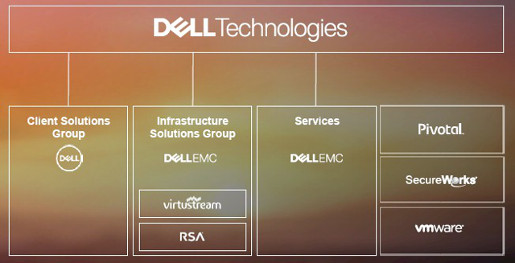Supplier Report: 9/24/2016

This week is Oracle World which means Larry Ellison is talking epic piles of trash against his competitors (IBM and Amazon). While Larry drops his truth bombs from his throne of garbage, Microsoft, SalesForce, and IBM take further steps in advancing AI.
In between sound-bytes, Oracle did manage to pick up a security automation company named Palerra. Google and Amazon both purchased companies to help develop and improve chatbots and even Apple grabbed a machine learning company named Tuplejump.
Blockchain was hot news this week as IBM secured paying customers in Japan to deploy their version of blockchain technology. As companies look to leverage blockchain for their own use, many early adopters are calling foul due to Accenture’s attempts to introduce the ability to edit transaction tables.
Acquisitions
- Apple acquires another machine learning company: Tuplejump
We’re hearing that Apple was particularly interested in “FiloDB”, an opensource project that Tuplejump was building to efficiently apply machine learning concepts and analytics to massive amounts of complex data right as it streamed in. According to its github page, FiloDB was primarily headed up by Evan Chan; Chan’s LinkedIn page says he’s been with Tuplejump since August of 2015.
- Oracle buys Palerra to boost its security stack
Palerra’s business currently focuses on providing security automation for enterprise apps, covering not just data in the apps but as that data “moves across services and it offers several layers of protection across infrastructure and software services,” as we wrote about them last year. Given how many apps today integrate and exchange data by way of APIs, that makes for a significant business.
https://techcrunch.com/2016/09/18/oracle-buys-palerra-to-boost-its-security-stack/?ncid=rss
- Google’s new acquisition makes building chatbots easier
Google took a shot at Facebook’s chatbot-building services on Monday with its acquisition of API.ai, a company that helps developers build and improve conversational interfaces for their services.
API.ai has more than 60,000 developers using its platform to create conversational user interfaces for apps like Slack, Facebook Messenger and Kik. Its tools make it easier for programs to parse human language and translate it into action. The financial terms of the deal were not disclosed.
http://www.cio.com/article/3121952/googles-new-acquisition-makes-building-chatbots-easier.html
- Amazon wants a piece of the chatbot action too…
It looks like Google, which yesterday acquired API.ai, a company that helps developers build conversational interfaces, isn’t the only major tech company hoovering up chat bot talent. TechCrunch understands that Angel.ai (formerly known as GoButler) has, at least partially, been acqui-hired by Amazon.
The e-commerce giant confirmed that Angel.ai co-founder and CEO Navid Hadzaad has joined the company. “I can confirm that Navid started at Amazon, and that his first day was yesterday. We don’t have anything further to share at this time,” an Amazon spokesperson told TechCrunch.
- Cisco and IBM Both Evaluate the Security Company Imperva
An analyst note penned by Mitch Steves of RBC Capital Markets says a purchase by Cisco would align with its stated strategy to boost their security portfolio. He said that Cisco’s portfolio is “maximized in terms of attacks from the outside.” Imperva’s technology would be a “next step” in boosting its portfolio with hybrid cloud security, writes Steves.
Imperva’s flagship product is its SecureSphere Data Security Suite, which can protect on-premises data as well as data in private, public, and hybrid clouds.
https://www.sdxcentral.com/articles/news/cisco-ibm-evaluate-security-company-imperva/2016/09/
- Twitter shares spike on rumors of acquisition by Google, Microsoft, Salesforce or Verizon
Twitter’s board of directors wants to sell, and a formal bid may come “shortly,” said CNBC, citing unnamed “people close to the situation.” But CNBC also said “no sale is imminent,” without accounting for the discrepancy.
Negotiations are picking up steam and could be concluded by year-end, CNBC quoted one source as saying. The would-be buyers are said to be as interested in Twitter’s data as they are in its status as a media company.
Artificial Intelligence
- Microsoft Enlists AI, Cloud in Battle Against Cancer
Microsoft is exploring multiple approaches, including a cloud-based tool called the Bio Model Analyzer, which creates a model of healthy cells and compares it against cells that grow cancerous, evaluating the interactions in the genes and proteins, offering researchers a window into how cancer spreads. The technology could help detect cancer earlier and may help doctors design effective treatments, cope with rare cancers and determine when and if a cancer will become resistant to a given treatment.
Another cloud-based system called Literome trawls through millions of research papers, enabling oncologists to spend more time easing their patients’ suffering and less time combing through thick volumes of medical research. “To build Literome, [Microsoft researcher Hoifung] Poon and his colleagues used machine learning to develop natural language processing tools that require only a small amount of available knowledge to create a sophisticated model for finding those different descriptions of similar knowledge,” wrote Linn.
http://www.eweek.com/enterprise-apps/microsoft-enlists-ai-cloud-in-battle-against-cancer.html

- Salesforce thinks AI will help it beat Microsoft and Oracle
At next month’s Dreamforce, Salesforce’s mammoth annual customer conference that takes over downtown San Francisco, the company will introduce technology called Einstein, which it’s describing as the “world’s first comprehensive AI for CRM.”
On the company’s second-quarter conference call in August, Benioff called it “AI for everyone.”
Salesforce executives on Thursday gave a group of reporters an early look at Einstein in preparation for the unveiling. The general idea, as the name implies, is that sales tools are getting a whole lot smarter.
http://www.cnbc.com/2016/09/19/salesforce-thinks-ai-will-help-it-beat-microsoft-and-oracle.html
More:Powered by advanced machine learning, deep learning, predictive analytics, natural language processing and smart data discovery, Einstein’s breakthrough innovations allow models to be automatically customized for every single customer. These models learn, self-tune and get smarter with every interaction and additional piece of data. Einstein will automatically discover relevant insights, predict future behavior, proactively recommend best next actions and even automate tasks. Now every Salesforce user will be able to leverage AI capabilities to deliver more personalized and predictive customer experiences.
https://mspoweruser.com/salesforce-announces-einstein-ai-platform-take-microsoft-others/
- Microsoft surpasses IBM Watson, achieves lowest error rate for speech recognition
WER, in case you are unaware of it, is a commonly used metric of the performance of voice based systems, including speech recognition or machine translation. Until now, the IBM Watson had the lowest WER of 6.9, although IBM had at a recent interspeech conference claimed achieving 6.6 percent error rate. However, Microsoft’s new systems are even better.
https://thetechportal.com/2016/09/18/microsoft-surpasses-ibm-watson-voice/
- IBM Watson is just ‘an advertisement’ for AI while Amazon Aurora is ‘not very good’ – Oracle’s Mark Hurd was on fire today
Nothing we haven’t heard before, perhaps, but then things got really weird, as someone brought up AI. Hurd said artificial intelligence is “nothing more than pattern matching” and called IBM Watson an “advertisement”.
“I look through a bunch of videos and say ‘Those two images are the same, or those two pieces of text are the same, or those two numbers are the same’. The real trick to this isn’t where you see it with advertisements like Watson, but the ability to get it into my day-to-day work,” said Hurd, alluding to yesterday’s keynote, when Ellison used a chatbot to order some business cards and make a crack about no longer being CEO, as the bot spotted his “change of title”.
Cloud
- IBM inks blockchain deal with Japan’s largest bank
Together with Bank of Tokyo-Mitsubishi UFJ (BTMU), IBM will design, manage, and establish contracts that potentially could be deployed among business partners.
The two companies plan to tap blockchain technologies to automate business transactions between both organisations.
The first pilot project, which started in May this year, was built on Linux Foundation’s open source blockchain platform, Hyperledger Project, and deployed for contract management on the IBM cloud.
- IBM Set to Launch One of the Largest Blockchain Implementations to Date
The implementation, which will help its financing unit resolve disputes with customers and partners, could send a signal to a market where enormous amounts of money have been invested in blockchain companies and their technology. The move also will make IBM one of the largest organizations to date to shift beyond limited tests of the emerging technology to real-world business transactions.
The system is expected to free some of the $100 million in capital tied up at any given time in transaction disputes in the IBM Global Financing unit, said Jerry Cuomo, vice president of blockchain technologies. Blockchain is touted as a way to make many markets and functions more efficient by removing the middleman.
http://blogs.wsj.com/cio/2016/07/29/ibm-set-to-launch-one-of-the-largest-blockchain-implementations-to-date/
Microsoft sees ‘staggering’ potential for blockchain technology as it releases new ‘Bletchley’ templateMicrosoft has released version 1 of Bletchley template for Azure, which lets users create a distributed-ledger, or blockchain, network with minimal knowledge of Azure or Ethereum, a crowd-funded, cloud-based public software project. The new release of Bletchley cuts the three-week process of setting up an Ethereum network to “eight questions and 5-8 minutes,” said Marley Gray, principal program manager of Azure blockchain engineering, in a blog post.
- Why Accenture broke the blockchain with IBM’s help
Accenture just released its most articulate blockchain paper to date, called “Editing the Uneditable Blockchain: Why Distributed Ledger Technology Must Adapt to an Imperfect World” apparently based on the primary work in Redactable Blockchain, or Rewriting History in Bitcoin and Friends.”
Since 2009, there have been 157.2 million bitcoin transactions. None of those transactions were removed, redacted or rewritten. They were and continue to be immutable.
Does removing the immutability of blockchains address human error? During our MIT CIO Symposium discussion, “How Blockchain Will Transform the Digital Economy,” my colleague Anders Brownworth of Circle suggested private or permissionless blockchains were equivalent to an intranet — cosmetic and functionless. I agree.
- Oracle Continues Its All-Out Push Into the Cloud, but Amazon and Others Aren’t Standing Still
This is nothing new for Oracle; the company pretty much did the same thing during last year’s OpenWorld conference. As its July quarter earnings report demonstrates, the company wants investors, customers and partners focused squarely on its strong cloud app and services growth, and not on its slumping on-premise hardware and software sales.
https://www.thestreet.com/story/13744646/1/oracle-continues-its-all-out-push-into-the-cloud-but-amazon-and-others-aren-t-standing-still.html
Larry Ellison: ‘Amazon’s lead is over’Meanwhile, Oracle’s IaaS business is growing so far but not nearly at the rate of its SaaS and PaaS business. SaaS and PaaS revenue was up 82 percent in the first quarter compared to a year ago (in constant currency), totaling $815 million. IaaS, by comparison, grew 10 percent to $171 million.
http://www.zdnet.com/article/larry-ellison-amazons-lead-is-over/

Datacenter
- Falling flash prices are a boon to enterprise storage buyers
That was the big trend in the second quarter of this year, according to IDC. Enterprise storage systems factory revenue was US$8.8 billion, flat compared with last year’s second quarter, but the total capacity that vendors shipped increased 12.9 percent.
Much of the credit goes to the falling price of a gigabit of flash storage, IDC analyst Liz Conner said. It’s amplified by the growing popularity of flash, which enterprises are adopting for both speed and space-saving. Technology advancements help: Where enterprises last year were ordering SSDs (solid-state drives) with up to 3TB, now they can buy in bulk with units as big as 15TB.
http://www.cio.com/article/3121328/falling-flash-prices-are-a-boon-to-enterprise-storage-buyers.html
- EMC: King of storage needs to shore up defenses
EMC (18.1 per cent) lost -5.5 per cent points of revenue share in the year, HPE (17.6 per cent) gained 8.8 per cent, Dell (11.5 per cent) a relative monster increase of 13.8 per cent, IBM (6.8 per cent) lost -15.6 per cent (recently-appointed storage boss Ed Walsh has a mountain to climb) with NetApp (6.7 per cent) losing -3.2 per cent. The market amounted to $8.83 BN, with ‘Others’ taking 30.3 per cent of that and ODM direct 9 per cent.
http://www.theregister.co.uk/2016/09/19/weakness_appears_in_emcs_storage_dominance/
- As Dell and HPE revamp, Lenovo sets sights on enterprise cloud servers
Lenovo wants a bigger chunk of that market and is working toward offering custom-built converged servers targeted at specific tasks. The company is also looking for a larger opportunity with custom hardware for large-scale customers.
http://www.cio.com/article/3120742/as-dell-and-hpe-revamp-lenovo-sets-sights-on-enterprise-cloud-servers.html
I called this out on SourceCast Episode 38 - IBM focuses on a hybrid-cloud future with latest hardware and software
In support of its emphasis on the hybrid approach, IBM cited its own recent survey of 1,000 respondents, who said 45 percent of workloads will remain on the premises despite cloud growth.
IBM also announced new or strengthened relationships with partners Canonical, Hortonworks, Mirantis, NGINX and Red Hat. In particular, IBM and Red Hat together said they plan to deliver offerings built on open-source products including Red Hat’s enterprise Linux, its virtualization and its enterprise Linux High Availability.
Research firm Gartner last month put IBM in the lower-left corner of its most recent Infrastructure-as-a-Service magic quadrant, well behind market-leader Amazon Web Services and behind Microsoft Azure and Google Cloud Platform.
http://www.geekwire.com/2016/ibm-focuses-hybrid-cloud-future-latest-hardware-software/
Software/SaaS/IaaS
- Microsoft is shutting down Skype’s HQ in London as part of large-scale terminations
Surprisingly, the Financial Times also reported an insider working in the Skype HQ stating that the move was not a surprise. Many in the office anticipated the same and had been leaving the company since the past few years. The layoffs so far have been attributed to the Microsoft’s struggling smartphones business.
- Cisco and Salesforce join forces for sales, service and IoT solutions
The two companies will tie up on both Salesforce and Cisco products to offer enhanced capabilities in Salesforce’s Sales Cloud and Service Cloud, Salesforce IoT Cloud and Cisco’s Unified Contact Center Enterprise.
Helping organisations collaborate better, Cisco and Salesforce’s first announcement will see Cisco Spark and WebEx integrated into Salesforce’s Sales Cloud and Service Cloud via the Salesforce Lightning Framework. It will help colleagues communicate better via chat, video, and voice without leaving Salesforce.
Other
- Employees, not outsiders, are responsible for most cyber threats, IBM says
Sixty percent of all attacks in 2015 were made by insiders – employees, contractors, consultants and third-party vendors – with malicious intent or inadvertent actors. Inadvertent actors are initiated or instigated by trustworthy people within an organization.
Two-thirds of these attacks were fueled by malicious intent and the rest were the result of inadvertent actions.
- Silicon Valley layoffs beat any dot.com bust records
An additional 62,917 jobs were lost in June 2016 from Silicon Valley alone. And then there were veiled threats from Apple, Google, Amazon and more that use Ireland as a tax haven.
Tech recruitment company Challenger commented, “Companies that do not adapt to changing trends will be left behind. Nobody knows this better than technology firms, where the very nature of the business means constantly evolving and shifting resources. We are seeing this play out with Cisco, just as it has played out with Intel, Microsoft, Hewlett-Packard, Dell, and several other tech giants in recent months.”
http://www.itwire.com/recruitment/74825-silicon-valley-layoffs-beat-any-dot-com-bust-records.html
- HP printers block third party print cartridges
HP printers are no longer recognising unofficial and cheaper printer ink cartridges after a firmware update, according to third party Dutch printer ink vendor 123inkt.
HP admits that as a result of the update, settings had been changed so HP printers would only communicate with cartridges with HP chips.
http://www.channelbiz.co.uk/2016/09/19/hp-printers-block-third-party-print-cartridges/
Translation: HPI doesn’t make any money on the printers so they are doing everything they can to make you buy their ink. - Oracle Receives Favorable Ruling, Awarded $100 Million
The United States District Court for the District of Nevada not only granted Oracle’s motion for a permanent injunction but also ordered Rimini and its CEO to pay more than $100 million in punitive charges.
The favorable ruling is quite a breather after Oracle’s recent litigation setbacks against Alphabet Inc. and Hewlett-Packard Enterprise
http://www.nasdaq.com/article/oracle-receives-favorable-ruling-awarded-100-million-cm683847
Photo: Peter Lobozzo
SourceCast: Episode 41: Know thy Enemy
Supplier Report: 9/17/2016

It is a dynamic time in the world of IT. Nothing is assured, nothing stays the same.
Dell Technologies announced a sell off of their enterprise content management unit to help pay off the massive debt incurred purchasing EMC. What does this mean for Documentum and the other products? Some experts think OpenText will invest in the product, more seem to think it is DOA.
As artificial intelligence becomes more wide-spread, IBM and Google, who at the moment are not really in competition with each other, will most likely find themselves as rivals. Not only in AI, but also in cloud hosting and blockchain solutions.
HP Inc had themselves a good week. They purchased Samsung’s print division for $1.05B and also switched to a Microsoft CRM solution which the press can’t seem to stop talking about. How will Microsoft reward HPI for such an act?
Acquisitions

- OpenText to buy Dell EMC’s enterprise content unit for $1.62B
Canadian business software maker OpenText Corp said it agreed to buy Dell-EMC’s enterprise content division for $1.62 billion to beef up its offerings for large businesses.
Barclays, which acted as a financial adviser, has provided a $1 billion debt commitment for the deal, OpenText said on Monday.
The deal is expected to immediately add to earnings, the company said.
http://www.dailymail.co.uk/wires/reuters/article-3785394/OpenText-buy-Dell-EMCs-enterprise-content-unit-1-62-bln.html
Documentum’s Fate at OpenText: New Life or Certain Death?That doesn’t seem to be the case. According to an informal CMSWire’s poll, more than 60 percent of responders believe OpenText is interested in product revenues only and won’t be investing in further development.
- Salesforce to Acquire Cambridge Messaging Startup HeyWire
This time it’s HeyWire, a Cambridge-based messaging startup that lets businesses receive text messages through 1-800 numbers and other business lines from customers.
HeyWire CEO and co-founder Meredith Flynn-Ripley wrote in a Wednesday blog post that Salesforce has signed a definitive agreement to acquire the company. Terms of the agreement were not disclosed.
http://bostinno.streetwise.co/2016/09/07/salesforce-to-acquire-cambridge-messaging-startup-heywire/
- Salesforce (CRM) on an Acquisition Spree, Buys Gravitytank
Salesforce’s latest acquisition is Gravitytank, a Chicago-based consulting agency. The deal was announced through Gravitytank’s website.
A Salesforce representative confirmed the transaction but declined to disclose the price.
http://www.businessinsider.com/salesforce-buys-gravitytank-2016-9
- Verizon buys Sensity and launches farm pilot with sensor tech
Sensity, based in Sunnyvale, Calif., has focused on using energy-efficient LED lighting to help cities build an IoT platform on city streetlights. The platform can include the use of various sensors on a streetlight pole to monitor weather and city services ranging from parking to public safety.
- Is Google Eyeing An Acquisition Of Box After Forming A New Partnership?
Recode also highlighted a part of the what was included in Google and Box’s press release. The two companies will “work together to develop and deliver next-generation intelligence to Box users searching for content on Google Springboard.”
Google Springboard is Google’s new search engine built specifically for enterprise customers.
As such, investors should be questioning if the partnership is a precursor to a Google acquisition of Box. According to Recode, the answer isn’t just a “maybe” but “probably not.”
Artificial Intelligence
- The Growing Rivalry Between Google And IBM
Today, IBM and Google are very different businesses. While Google offers products directly to consumers, IBM mostly designs powerful systems for enterprises. Google makes the bulk of its money through advertising, while IBM has a large and highly qualified sales force that can service demanding customers.
To be sure, in many ways, IBM and Google are at opposite ends of the spectrum when it comes to focus, business model and operational structure. Still in conversations with both companies, I can’t help but feel them eyeing each other somewhat warily. After all, while their businesses may be far apart, they are both competing for the same technological high ground.
- War for Artificial Intelligence: IBM’s Blockchain Push May Anticipate Google’s Ambush
The vocal advocacy of IBM in the Blockchain space stands in stark contrast to Google’s almost complete silence on the subject. Prussian military theorist Carl Philipp Gottlieb von Clausewitz in his treatise ‘On War’ wrote that “surprise plays a much greater role in strategy than in tactics,” and of course the famous 孙子 (Sun Tzu) is remembered by the words “when the enemy is close at hand and remains quiet, he is relying on the natural strength of his position.” To assume that Google is doing nothing in the Semantic Blockchain space is naïve. Let us look forward with anticipation, and, for some, perhaps dread, to what eventually Google plans to roll out.
- AI can make your money work for you
Advances in AI will create a robo-accountant that knows your spending better than you do. By analyzing your purchase history, it will constantly move money between your checking, savings, investments and credit cards. This way, your checking account’s balance is always in the narrow “sweet spot:” high enough to avoid fees, but not so high that you miss out on investment yield.
Right now, finding that sweet spot is time-consuming and anxiety-inducing. In time, the robo-accountant will know when you’re likely to splurge. It will know when your car will need a repair, when your electric bill will spike. It will know when you’re actually better off carrying a balance on your credit card than paying your bank’s minimum-balance fee.
https://techcrunch.com/2016/09/08/ai-can-make-your-money-work-for-you/?ncid=rss
Cloud
- Blockchain: Transformational Technology for Health Care
Take a standard health plan/provider agreement, or in risk-based relationships, provider/provider agreements, where each provides the other with a paper contract. Each entity loads the agreement into their separate systems, and it defines their relationship. The payor also has a contract with each person who has purchased a health plan. Using Blockchain, the health plan and provider could translate the wide variety of agreements needed to contracts on the Blockchain so everyone has visibility, and clarity exists for both the provider and the member. So when a transaction is processed, the Blockchain checks the authorization, and everyone can view the status, history and next steps. This transaction payment information could also be connected with the clinical service details to provide a holistic view of the patient’s interaction. Storing the information to create this holistic view in Blockchain would create a foundation that enables interoperability and innovation across the industry.
https://www.linkedin.com/pulse/blockchain-transformational-technology-health-care-bruce-broussard

- How Microsoft Is Winning the War in the Cloud
In fact, it’s Microsoft’s forays into the cloud that will continue to generate its profit growth as things like traditional software and computer hardware sales fall by the wayside. The company has made big investments — as much as $10 billion on a data center for the development of its Azure cloud system. And these investments are going to pay off as the cloud continues to redefine how the world does business and stores its data.
https://www.thestreet.com/story/13726671/1/how-microsoft-is-winning-the-war-in-the-cloud.html
- Comparing Cloud Vendors: A Primer For IT
But the Forrester authors, without commenting on the nature of the Google cloud (which launches two billion containers a week), said most enterprise developers “are not yet ready to ‘run like Google.’ They need more packaged data and database migration services, and more confidence that their core business apps are ready to run on the Google Cloud Platform.”
- Does Oracle’s Cloud Growth Come at a Cost?
On the flip side of the strong growth in cloud, the company has been seeing a slowdown in its software licensing business. So the question in investors’ minds that management will have to answer is whether the company is sacrificing the higher-margin licensing business with the focus on growing its cloud business. If so, will cloud margins down the road be sufficient to offset the declines in licensing? If not, why is licensing slowing as cloud picks up? Tough spot for Oracle management, any way one looks at it.
http://realmoney.thestreet.com/articles/09/15/2016/does-oracles-cloud-growth-come-cost
Datacenter
- Oracle Killer, New Threat Face Database King
Oracle was initially slow to jump into the cloud industry because it contradicted what it was doing, which was offering businesses the hardware and software solutions to manage their own IT infrastructures. Cloud is essentially antithetical to that business model – even antagonistic, one might say. But after it realized its mistake it quickly ramped up its cloud business and is now strongly in the SaaS and PaaS segment, although not as much in the infrastructure game where Amazon is the undisputed leader.
But Amazon was having none of that. Consequently, it launched Amazon Aurora in late 2014, also known as the Oracle Killer. Aurora is a relational database engine that directly competes with Oracle’s database products. If Oracle is the king of databases, then Aurora is the mysterious assassin whose only job is to take the king’s life.
To make Aurora’s job easier, Amazon structured the service so no upfront license fee needs to be paid. In effect, it made it a pay as-you-go service.
http://www.gurufocus.com/news/441918/oracle-killer-new-threat-face-database-king
- Chinese Giant Huawei to Attack Server Market
To be fair, Huawei is not “new” to servers: it’s been building them for years and is ranked as the fourth largest server provider as measured by units sold by Gartner IT . What’s different now is that, on August 31, the company said it will build servers targeting the public and private clouds, as well as telecom-focused data centers.
http://fortune.com/2016/09/12/huawei-to-attack-server-market/
- Dell Technologies ‘to cut up to 3,000 jobs after $67 billion EMC deal’
PC and cloud vendor Dell will reportedly slash between 2,000 to 3,000 jobs after acquiring data storage company EMC.
Most of the job cuts will be in the United States and will happen later this year, according to Bloomberg, which cites people familiar with the company’s plans.
Dell did tell sister site Channel Pro this week that it would merge its sales channel with that of EMC’s. Tim Griffin, VP & GM UK at Dell EMC, said: “Today we have two channel programmes. The intent is to have a single channel for February 2017.”
Dell is hoping the cuts will help create cost savings of about $1.7 billion in the first 18 months after the transaction, but is largely focused on using the deal to boost sales by several times that amount.
The new company has 140,000 employees.
- Cisco exec churn: Enterprise chief Soderbery out
Soderbery said he has no current plans and Cisco said of his departure: “We thank Rob for his important role helping Cisco identify Enterprise needs and address them with world-class networking products and solutions, and we wish him all the best for the future.”
- Why Meg Whitman is breaking the one-time symbol of Silicon Valley into pieces
These spinoffs have provided needed capital as Hewlett-Packard Enterprise realigns itself with a narrower focus. Last year it bolstered its hardware business by acquiring for $3 billion Aruba Networks, the second-largest provider of company Wi-Fi networks behind Cisco. And last month HPE announced a $275 million purchase of Silicon Graphics, which sells fast servers and storage systems.
Software/SaaS
- Microsoft Beats Out Rivals for HP Software Deal
As part of a six-year contract—the dollar value of which they would not disclose—HP HPQ 0.17% plans to roll out the product to about 6,500 HP salespeople and 20,000 support personnel. Total HP headcount is about 50,000 (plus another 6,000 coming aboard as part of its just-signed deal to buy Samsung’s printer unit).
http://fortune.com/2016/09/12/microsoft-beats-rivals-for-hp-software-deal/

What is HP Inc going to get from Microsoft for this deal?
Other
- Despite all the trash-talking, Salesforce CEO Marc Benioff says he still loves Larry Ellison
“Business is a lot like tennis. You get on the court with your friends, you play as hard as you can, you get really upset, you say crazy things, you go off the court, you go and have lunch and have a glass of wine and remember how much you love them.
I love Larry Ellison, he’s a great mentor to me, he’s been a great friend, and probably there is no one in the industry who has done more for me than Larry Ellison, and I’m very grateful to him.”
http://www.businessinsider.com/marc-benioff-loves-larry-ellison-2016-9

- It is official: HP buying Samsung Electronics’ printer business for $1.05B
HP Inc. said Monday that it is the largest print acquisition in the company’s history and will help it go from traditional copiers to multifunction printers. HP also said the deal will strengthen its position in laser printing, which it established with Canon.
http://www.sfchronicle.com/business/article/HP-buying-Samsung-Electronics-printer-business-9216916.php
Samsung had a printer unit? And does HPI really need to buy their 4% market share?
Oh wait… CRN has an answer for me:An HP acquisition of the Samsung printer business would take out a competitor and give HP strength in different geographies, said Martin Wolf, president of martinwolf M&A Advisors of Walnut Creek, Calif., one of the top channel investment advisory deal makers.
http://www.crn.com/news/components-peripherals/300082020/report-samsung-is-considering-selling-printer-business-to-hp-in-1-8b-deal.htm
And then there is this news…
HP Inc. Goes Old School With Plans to Sell Copy MachinesStill, Enrique Lores, HP’s president of imaging and printing, voiced optimism for the initiative. Copy machines still account for $55 billion in annual sales, which could be lucrative if the company gained a sizable share.
- Wells Fargo fires 5,300 employees for opening 2M fake accounts in customers’ names
Wells Fargo says that it has been rooting out employees who ran this con for the past two years, having caught 5,300 of them so far (the bank employs 265,000 people). The fake accounts — savings, checking, credit/debit cards — were opened in the names of existing Wells Fargo customers, who had their accounts raided to create balances in the new accounts, and were then hit with fees that cleaned them out.
http://boingboing.net/2016/09/09/wells-fargo-fires-5300-employ.html
Photo: Ryan Johnston
Supplier Report: 9/10/2016

I am trying something new this week by focusing on topical categories instead of sections categorized by supplier. Please let me know if you like it or don’t.
As there are changes with this blog, there are changes to IT suppliers…
EMC is officially no more, long live Dell Technologies? As expected, Dell has formally closed on the EMC acquisition and the timing could not be more ironic. While Dell becomes enormous, Hewlett Packard is ever shrinking. This week, HPE announced they are “spin-merging” their software division with Micro Focus.
This is the second spin-merge HPE is attempting this year (the other being the sell off of consulting services to CSC expected to close in March 2017).
While Dell grows and HPE shrinks, Google and IBM are trying to cure cancer.
Acquisitions

- HP Enterprise in $8.8B Software Deal With Micro Focus
The transaction is expected to be tax free to HP. Micro Focus will pay $2.5 billion in cash to HPE, while HPE shareholders will own 50.1 percent of the combined company that will operate under the name Micro Focus and be run by its executives. HP said it would pay $700 million in one-time costs related to the separation of the assets.
- Intel to spin out McAfee cybersecurity unit into new company
Intel will get $3.1 billion cash and retain a 49 percent stake in the new company. TPG, based in Fort Worth, Texas, will invest $1.1 billion in McAfee and own 51 percent of the company. The transaction is expected to close in the second quarter next year.
- It’s official: Say hello to Dell Technologies, the juggernaut of enterprise tech
The deal creates the largest privately held tech company in the world, which is worth $74 billion and serves 98% of Fortune 500 companies, according to the announcement.
- Oracle buys cloud WMS provider LogFire
Redwood Shores, Calif.-based Oracle and Atlanta-based LogFire announced last year they had joined forces to create what they claimed to be the first-ever integrated transportation and warehouse suite tailored to the cloud. Logfire has been a player in the logistics industry’s migration from tailored, on-premise software installations to cloud-based applications that can be managed from remote locations. LogFire’s platform provides an integrated warehouse, inventory, and workforce management application.
http://www.dcvelocity.com/articles/20160908-oracle-buys-cloud-wms-provider-logfire/
- T. Rowe Price opposes Oracle’s $9.3B NetSuite acquisition
“In our view, the inherent conflicts of interest between NetSuite, the Ellison entities and Oracle are daunting and may be impossible to manage, ” T. Rowe wrote in the letter, sent to NetSuite’s board on Tuesday. “Therefore, subjecting this transaction — or any future versions of it — to the approval of the unaffiliated shareholders is essential.”
- Google will acquire Apigee for $625 million
Google announced today that it intends to purchase Apigee, an API management platform that went public last year, for $625 million or $17.40 a share.
The company, which helps customers build digital products with open APIs, has an impressive customer list including Walgreens, AT&T, Bechtel, Burberry, First Data and Live Nation.
https://techcrunch.com/2016/09/08/google-will-acquire-apigee-for-625-million/?ncid=rss
Artificial Intelligence
- Hospital to use IBM’s Watson for cancer care (Korea)
IBM Watson for Oncology, a cloud-based machine-learning platform, was designed to provide physicians with evidence-based medical treatment options. The supercomputer analyzes large volumes of medical information and references available to help doctors offer individualized, data-driven treatment options for cancer patients.
http://koreajoongangdaily.joins.com/news/article/article.aspx?aid=3023649
- Google is using AI to speed up cancer treatment
DeepMind recently announced a partnership with the Radiotherapy Department at University College London Hospitals NHS Foundation Trust. The department provides world-leading cancer treatment, but there’s one area in particular where Google’s AI could help speed up the process.
When it comes to certain types of cancer in areas like the head and neck doctors need to plan carefully to avoid damaging important organs and body parts. The process, called segmentation, can take four hours to complete. DeepMind says it can get that down to just one hour.
http://www.technobuffalo.com/2016/09/04/google-deepmind-ai-cancer-treatment/
- New IBM Linux servers custom-made for AI, deep learning and data centre efficiency
“NVIDIA NVLink provides tight integration between the POWER CPU and NVIDIA Pascal GPUs and improved GPU-to-GPU link bandwidth to accelerate time to insight for many of today’s most critical applications like advanced analytics, deep learning and AI.”
https://thestack.com/data-centre/2016/09/08/ibm-power-systems-s822lc-data-center-servers/
Cloud
- What to do when the cloud eats your hardware vendor
In the first quarter of 2016 Amazon reported that revenue for its Web Services division grew 64% from the same period a year earlier. Salesforce.com reported a 33% increase in revenues compared to a year earlier.
Meanwhile, global storage revenues declined 32% between 2007 and 2015 and server revenues dropped 13%, according to research firm Forrester. The trend is clear: Cloud revenues are up, on-premises hardware revenues are down.
- Box and IBM just rolled out the first product they built together since making last year’s blockbuster deal
On Tuesday, Box rolled out a new product called Box Relay which helps users custom build workflows so they can automate and track their whole work process.
For example, a salesperson may have a work process that involves four or five steps, including approvals from the sales manager, finance and legal departments. Instead of having to pull up different documents through multiple software apps, Box Relay allows the user to automate everything within Box.
http://www.businessinsider.com/box-and-ibm-first-product-built-together-since-partnership-2016-9
- Is Microsoft building a Slack killer?
A few months ago, rumors circulated that Microsoft considered buying the cloud-based team collaboration tool Slack for a generous $8 billion. Overpaying again, it seems, as Slack’s last known valuation was $2.8 billion.
Now it seems that Microsoft has decided to build rather than buy, using its own Skype messaging service as the basis for a new product. According to the site MSPoweruser, Microsoft is coming for the Slack market with a product called Skype Teams.
Datacenter
- HPE sues high-flying ex-exec after defection to EMC
In a complaint [PDF] filed to the Delaware State Chancery Court, HPE alleges that KC Choi, the departed Vice President of Global Solutions Architecture, violated a 12-month non-compete agreement when he fled to EMC just before its acquisition by Dell.
http://www.theregister.co.uk/2016/09/06/hpe_sues_former_exec_over_dell_defection/
- The New Dell Stops Trying To Be The Old IBM
Both IBM and HPE are willing to shrink their supply chains in exchange for focus and the prospect of higher profits in the datacenter. Dell, for its part, is still clinging to clients and wants to have leverage in the supply chain (particularly with processor, memory, and storage suppliers) that it believes it will not have if it exits the PC business. We will be able to tell who is right with this. If HPE starts losing share to the new Dell Technologies in servers and storage, and is able to extract more profits, too, then Dell is right. Time will tell.
http://www.nextplatform.com/2016/09/08/new-dell-stops-trying-old-ibm/

Software/SaaS
- Microsoft Dethrones Salesforce As Top SaaS Provider
The worldwide software-as-service (SaaS) market grew by 33 per cent in the second quarter of 2016 and Microsoft’s SaaS business experienced significant growth as well. So much so, it has overtaken Salesforce as the number one enterprise SaaS provider, according to Synergy Research Group.
http://www.lifehacker.com.au/2016/09/microsoft-dethrones-salesforce-as-top-saas-provider/
- OpenOffice could shutter due to lack of volunteer developers
From Joey:
Alot of people are talking about OpenOffice support shutting down, but the headline is misleading. OpenOffice became part of Oracle as part of the Java acquisition. Oracle hasn’t done much to support the product over the years, and the opensource support groups forked the community.OpenOffice is alive and thriving in the form of LibreOffice. The only reason I am mentioning this is because this is a great example of what happens when a for-profit company like Oracle takes over an open-source project.
Other
- Microsoft’s tin ear for privacy
Another potential privacy danger is more hidden than Cortana, buried deep in Windows 10 — what’s called telemetry data. Telemetry gathers detailed information from every Windows PC, laptop and device about how Windows 10 is being used. So it tracks, for example, what software is installed on the system, what crashes occur, when and how they occur, and more. And there’s no way to turn that off, unless you use the enterprise edition of Windows 10 and your IT department essentially flips the “off” switch.
http://www.computerworld.com/article/3117343/data-privacy/microsoft-s-tin-ear-for-privacy.html

Photo: Khusen Rustamov






